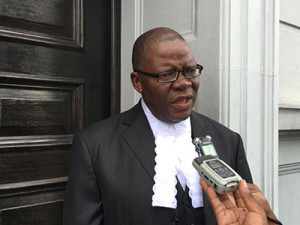Life prisoners now eligible for parole
A landmark judgment handed down yesterday by the Constitutional Court declaring it unconstitutional for inmates to serve life imprisonment without any possibility of parole or release on licence.
Background
The parole system allows the Minister of Justice, on the advice of a Board, to grant prisoners early release from prison before they have fully served their sentences. Prisoners can be released on parole on various grounds – for example humanitarian reasons – that they have become too old or ill to be kept in prison, or, that their good behaviour in prison shows that they have reformed and will not return to a life of crime.
Only one class of prisoner was completely debarred from release on parole: prisoners sentenced to life imprisonment. Under section 115 of the Prisons Act the Minister was permitted to release any prisoner on licence – i.e. on parole – “other than a prisoner who has been sentenced to death or to imprisonment for life”. What this meant was that however young a person might have been when sentenced to life imprisonment, he [and they were almost all male] would remain in prison for the rest of his life.
It was this that was challenged in the Constitutional Court, arguing that sentencing someone to prison with no hope of release violated the person’s dignity and amounted to cruel or inhuman punishment in contravention of section 53 of the Constitution.

file image courtesy of the Herald
The Judgement
Justice Patel ruled that the current legal system discriminating against inmates serving life imprisonment was a violation of human dignity and subjecting the group of prisoners to cruel, inhuman and degrading punishment.
“It is declared that:
1. “A life sentence imposed on a convicted prisoner without the possibility of parole or release on licence constitutes a violation of human dignity and amounts to cruel, inhuman or degrading treatment or punishment in breach of Sections 51 and 53 of the of the Constitution.
2. “The provisions of Part of the Prisons Act to the extent that they exclude prisoners sentenced to imprisonment for life from parole or release on licence process, contravene the right to equal protection and benefit of the law under Section 56(1) of the Constitution.
3. “Subject to paragraph 4 below, the further incarceration of the applicant amounts to a breach of his right to human dignity, right to protection against cruel, inhuman or degrading treatment or punishment and right to equal protection and benefit of the law under Sections 51, 53 and 56(1) of the Constitution.
4. “Pending the enactment of the legislation amending the provisions of Part of the Prisons Act, so as to conform with the right to equal protection and benefit of the law under Section 56(1) of the Constitution, the respondents shall apply those provisions, mutatis mutandis, to every prisoner sentenced to imprisonment for life, including the applicant.”
Mr Biti our senior partner described the decision as revolutionary judgment.“This is yet another revolutionary judgment. I am just humbled to be part of this historic legal process yet again,”
http://www.herald.co.zw/breaking-news-concourt-in-landmark-ruling-on-life-imprisonment/

 In a landmark case, High Court judge Justice Amy Tsanga has ruled that Section 70 of the Police Act, which places a cap of a six-month period within which police should be sued, is inconsistent with the country’s supreme law.
In a landmark case, High Court judge Justice Amy Tsanga has ruled that Section 70 of the Police Act, which places a cap of a six-month period within which police should be sued, is inconsistent with the country’s supreme law.